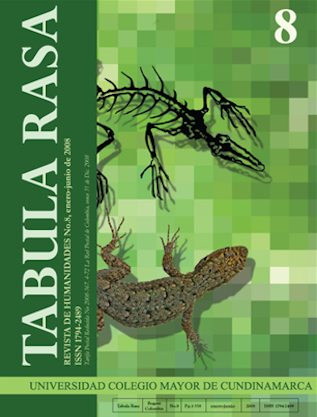Rethinking the Geopolitics of Knowledge: A Challenge to Imperial Visions
Re-pensando la geopolítica del conocimiento: reto a las violaciones imperiales
Show authors biography
The global objective of these exploratory notes is to open the debate about certain important aspects of the intersections between power, knowledge and geopolitics, and doing so in the context of the resurgence of imperial visions and the urgent need for a decolonialization of the imagination. The analytical terrain is vast, and the paths of thought outlined here represent an attempt to contribute to an actual series of studies and investigative projects that challenge old and new forms of colonial and imperial perspective. Based on a first and brief exploration of power, knowledge and geopolitics, the study values the importance of the critical in critical knowledge in order to, subsequently, refute the predominance of Euro-American thought, to arrive at a final observation about the importance of colonial and imperial power.
Article visits 133 | PDF visits 102
Downloads
Achcar, G. 2004. “U.S.Imperial Strategy in the Middle East”. Monthly Review, 55(9):23-36.
Agnew, J., Mitchell, K., y Toal, G. (eds.). 2003. A Companion to Political Geography. Oxford: Blackwell.
Bauman, Z. 1999. In Search of Politics. Cambridge: Polity Press.
Bauman, Z. 2002. Society under Siege. Cambridge: Polity Press.
Bourdieu, P., y Wacquant, L. 1999. “On the Cunning of Imperialist Reason”. Theory, Culture and Society, 16 (1):41-58.
Carothers, T. 1991. In the Name of Democracy. Berkeley: University of California Press.
Carver, T. 1998. The Postmodern Marx. University Park: Pennsilvania State University Press.
Castro-Gómez, S. 2000. “Traditional and Critical Theories of Culture”. Nepantla. Views from South, 1 (3):503-518.
Ceceña, A. E. 2004. «El Zapatismo – de la inclusión en la nación al mundo en el que quepan todos los mundos», en J. M. Gómez (ed.), América Latina y el (Des)Orden Global Neoliberal. 301-320. Buenos Aires: CLACSO.
Césaire, A. 2000. Discourse on Colonialism. New York: Monthly Review Press.
Dagnino, E. 1998. “Culture, Citizenship and Democracy: Changing Discourses and Practices of the Latin American Left”, en S. Alvarez, E. Dagnino y A. Escobar (eds.), Cultures of Politics, Politics of Cultures. 33-63. Boulder y Oxford: Westview.
Dhaliwal, A. 1996. “Can the Subaltern Vote? Radical Democracy, Discourses of Representation and Rights and the Question of Race”, en D. Trend (ed.) Radical Democracy. 42-61. Londres y Nueva York: Routledge.
Doty, R. .1996. Imperial Encounters. Minneapolis: University of Minnesota.
Dubois, L. 2000. “La République Métisée: Citizenship, Colonialism and the Borders of French History”. Cultural Studies, 14 (1):15-34.
Dussel, E. 1996. Filosofía de la Liberación. Bogotá: Editorial Nueva América
Dussel, E. 2002. “World System and ‘Trans’-Modernity”. Nepantla. Views from South, 3 (2):221-244.
Escobar, A. 1995. Encountering Development. Princeton (New Jersey): Princeton University Press.
EZLN. 2005. Sixth Declaration of the Selva Lacandona. Obtenido el 2 de noviembre de 2005, en http://www.ezln.org/documentos/2005/sexta1.en.htm.
Falk, R. 1995. On Humane Governance. Cambridge: Polity Press.
Foucault, M. 1979. Discipline and Punish. Harmondsworth: Peregrine Books.
Foucault, M. 1980. Power/Knowledge. C. Gordon (ed.). Nueva York: Pantheon Books.
Freire, P. 2004. Pedagogy of Indignation. Boulder y Londres: Paradigm Publishers.
González Casanova, P. 1995. Causes of the Rebellion in Chiapas. México: UNAM.
Gregory, D. 2004. The Colonial Present. Oxford: Blackwell.
Grosfoguel, R. Maldonado-Torres, N., y Saldívar, J. D. 2005- “Latin@s and the ‘EuroAmerican Menace’”, en R. Grosfoguel, N. Maldonado-Torres y J. D. Saldívar (eds.), Latin@ sin the World-System. 3-27. Boulder y Londres: Paradigm Publishers.
Harvey, D. 2003. The New Imperialism. Oxford: Oxford University Press.
Harvey, N. 1998. The Chiapas Rebellion. Durham y Londres: Duke University Press.




